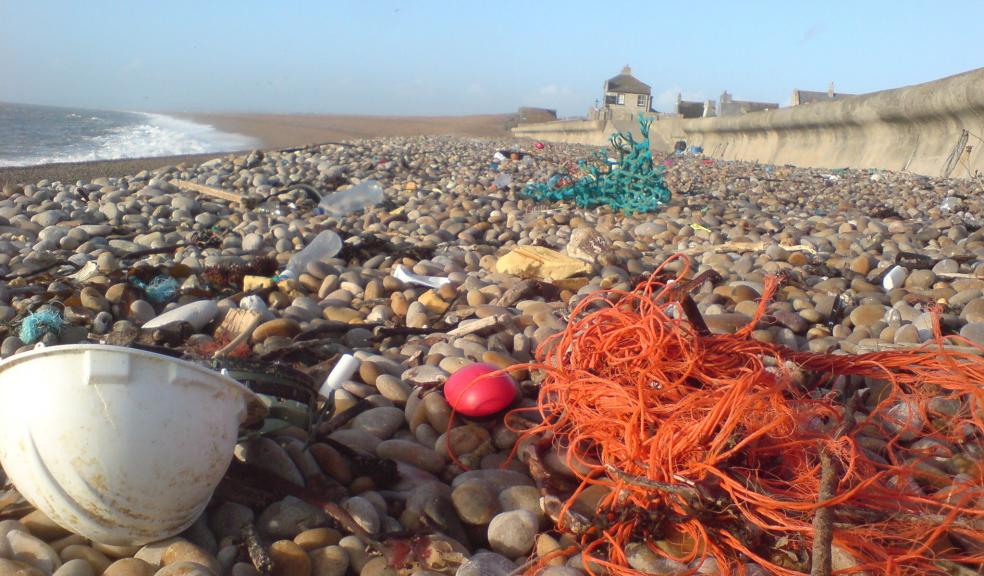
European competition challenges youngsters to capture marine litter issue on film
Schoolchildren are being invited to capture on camera the problem of marine litter and potential solutions as part of a new European film competition.
Launched by Plymouth University and the National Marine Aquarium, ‘Catch Marine Litter on Film’ challenges youngsters with the task of recording and documenting examples, and sharing their views on the issue.
The competition is part of the European-wide scientific project MARLISCO, being led in the UK by Plymouth University, and which aims to raise societal awareness of the problems and potential solutions relating to the accumulation of marine litter.
It is open to anyone aged 7-18, and will see the winner receive a significant cash prize and an invitation to Germany to attend the European premiere of their film.
Dr Bonny Hartley, of Plymouth University’s School of Psychology, and Marine Institute, said: “Marine litter is a societal issue in which people play a crucial role through their behaviours and decisions. We know it harms a wide range of marine life including commercially important species, and affects not just mariners but visitors to our beaches, including tourists.
“So the competition provides an exciting opportunity to engage young people in this major environmental problem and be creative in being part of the solution. It encourages youngsters to become drivers of change in society, directly influencing their families and communities and inspiring the broader public through their videos.”
Schools must register to take part by 8th November to guarantee their place in the contest, with a deadline for entries of 14th February, 2014. Full details of the competition, in particular the ‘UK Guidance & Rules for Entry’ document which outlines details about format, key dates and submission, are available online at www.marlisco.eu/video-contest.en.html. Entrants can register at www.psy.plymouth.ac.uk/UKVideoContest
As part of the competition, children will be able to take a short survey before and after the filming to assess what they’ve learned and whether it has changed their attitudes or behaviours.
The National Marine Aquarium is sponsoring cash prizes and trophies for the UK winners and their schools, with a celebrity prize-giving event to be held in Plymouth in the spring.
Paul Cox, Director of Conservation and Communication at the National Marine Aquarium, said: “We are delighted to be sponsoring the UK element of this fantastic competition. It’s a great opportunity for young people to start thinking about marine litter in a different way - and how their actions and those of others around them can have such an impact on the seas, and its marine wildlife.
“The MARLISCO competition reflects the aims of the National Marine Aquarium; to encourage visitors - young people and adults alike - to engage with marine conservation issues, and get involved in creating solutions. We are looking forward to seeing the UK entries early next year and recognising the achievements of those young people at the prize-giving event.”
The video contest is taking place in 14 European countries and the winning videos will be hosted on an EU website www.marlisco.eu/. Representatives of the winning team from each country will also be invited to a screening in Bremen, Germany, where a compilation of the best videos will be premiered. Travel and subsistence costs will be covered by MARLISCO.
MARLISCO is a three-year, €4.5 Million EU-funded project to engage society and raise awareness of the problems and solutions regarding marine litter in 15 countries across the North East Atlantic, Mediterranean, Baltic and Black Sea regions. The project aims to promote co-responsibility among different sectors of society, including recreational and commercial users of the coast and sea, environmental groups, educators, government and policy-makers, the media, waste management sectors, and designers, manufacturers and retailers of items that can potentially become marine litter.













